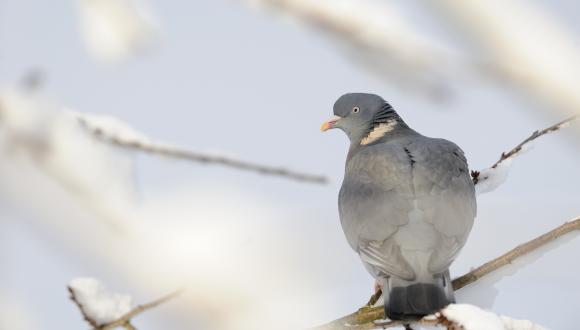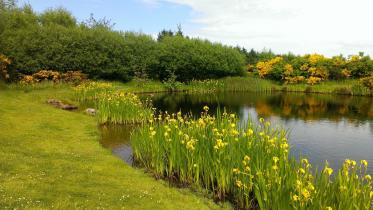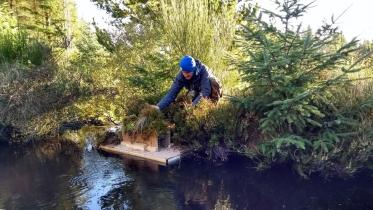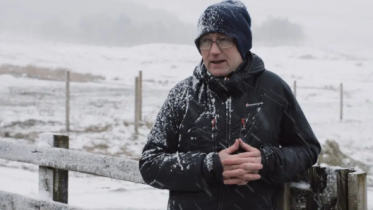General licence for birds - GL08/2023 - To permit the competitive showing of certain captive-bred live birds
General Licences allow authorised people to carry out activities that would otherwise be illegal under the Wildlife & Countryside Act 1981 (as amended). They cover situations where we are satisfied that there is no other satisfactory solution in respect of the species to which they relate and the circumstances in which the licensed action may be taken.
Terms and conditions
If you operate under General Licence 08/2023 you must meet the following terms and conditions otherwise your actions may be illegal which could lead to prosecution.
What can this General Licence be used for?
Authorised people (operators) can publicly exhibit and competitively show all captive-bred live wild birds except the following*:
Brambling (Fringilla montifringilla)
Reed bunting (Emberiza schoeniclus)
Goldfinch (Carduelis carduelis)
Greenfinch (Carduelis chloris)
Redpoll (Carduelis flammea)
Siskin (Spinus spinus) (previously Carduelis spinus)
Song thrush (Turdus philomelos)
Twite (Linaria flavirostris) (previously Carduelis flavirostris)
Yellow hammer (Emberiza citrinella)
* These birds are already legal to show if ringed and bred in captivity since they are listed on Schedule 3 Part 1 to the Wildlife & Countryside Act 1981 (as amended).
Who is authorised to use this General Licence?
An operator can be anyone.
What other information must operators know before considering use of this General Licence?
Operators must:
- understand this General Licence and comply with its terms and conditions
- only use it for the purpose of public exhibition or competition
When and where is this General Licence valid?
Across Scotland from 1 January to 31 December 2023 unless previously revoked.
What restrictions apply to the use of this General Licence?
This General Licence cannot be used by those convicted of a wildlife crime until that conviction is considered spent in accordance with the Rehabilitation of Offenders Act 1974 (as amended), they have received an admonishment or a court discharged them absolutely.
Any person not able to use this General Licence can still apply to NatureScot for an individual licence.
What are the general conditions of this General Licence?
- The bird must have been bred in captivity. A bird shall not be treated as having been bred in captivity unless its parents were lawfully in captivity when the egg from which it hatched was laid.
- Any bird shown under the terms of this General Licence which is not on Schedule 4 to the 1981 Act must be ringed with a legible individually numbered metal close ring, which is a ring or band in a continuous circle (without any break, join, or any sign of tampering since it was manufactured) and which cannot be removed from the bird when its leg is fully grown.
- Any bird shown under the terms of this General Licence which is on Schedule 4 to the 1981 Act must be registered and ringed with a close ring issued by the Animal and Plant Health Agency (APHA) (or, where authorised, a cable tie or Swiss/Hess ring issued by this Agency).
- Operators must if requested by an official of NatureScot, the APHA or a Police Officer make the bird available for a sample of blood to be taken. The blood or tissue sample will be taken by a qualified vet. Such a sample may be used to establish the ancestry of the bird. Likewise, any request to take a feather or swab from the bird for DNA analysis must be met with by the operator.
Definitions
For the purposes of this General Licence;
“NatureScot” means Scottish Natural Heritage acting under its operating name NatureScot.
"wild bird" means any bird of a species which is ordinarily resident in or is a visitor to the UK or any member State or the European territory of any member State in a wild state but does not include poultry. "Bird" includes all stages from chick to adult.
“wildlife crime” means any offence under the Wildlife & Countryside Act 1981, the Conservation (Natural Habitats &c.) Regulations 1994, the Protection of Badgers Act 1992, the Protection of Wild Mammals (Scotland) Act 2002, Deer (Scotland) Act 1996, Agriculture (Scotland) Act 1948, the Animal Health & Welfare (Scotland) Act 2006, the Protection of Animals (Scotland) Act 1912, the Wild Mammals (Protection) Act 1996 and the Animals & Wildlife (Penalties, Protections and Powers) (Scotland) Act 2020 (all as amended).
Contact
If you already have a licence number, include it in the subject line of your email, or have it to hand when you call.
Disclaimer: Scottish Natural Heritage (SNH) has changed its name to NatureScot as of the 24th August 2020.
At the time of publishing, this document may still refer to Scottish Natural Heritage (SNH) and include the original branding. It may also contain broken links to the old domain.
If you have any issues accessing this document please contact us via our feedback form.





